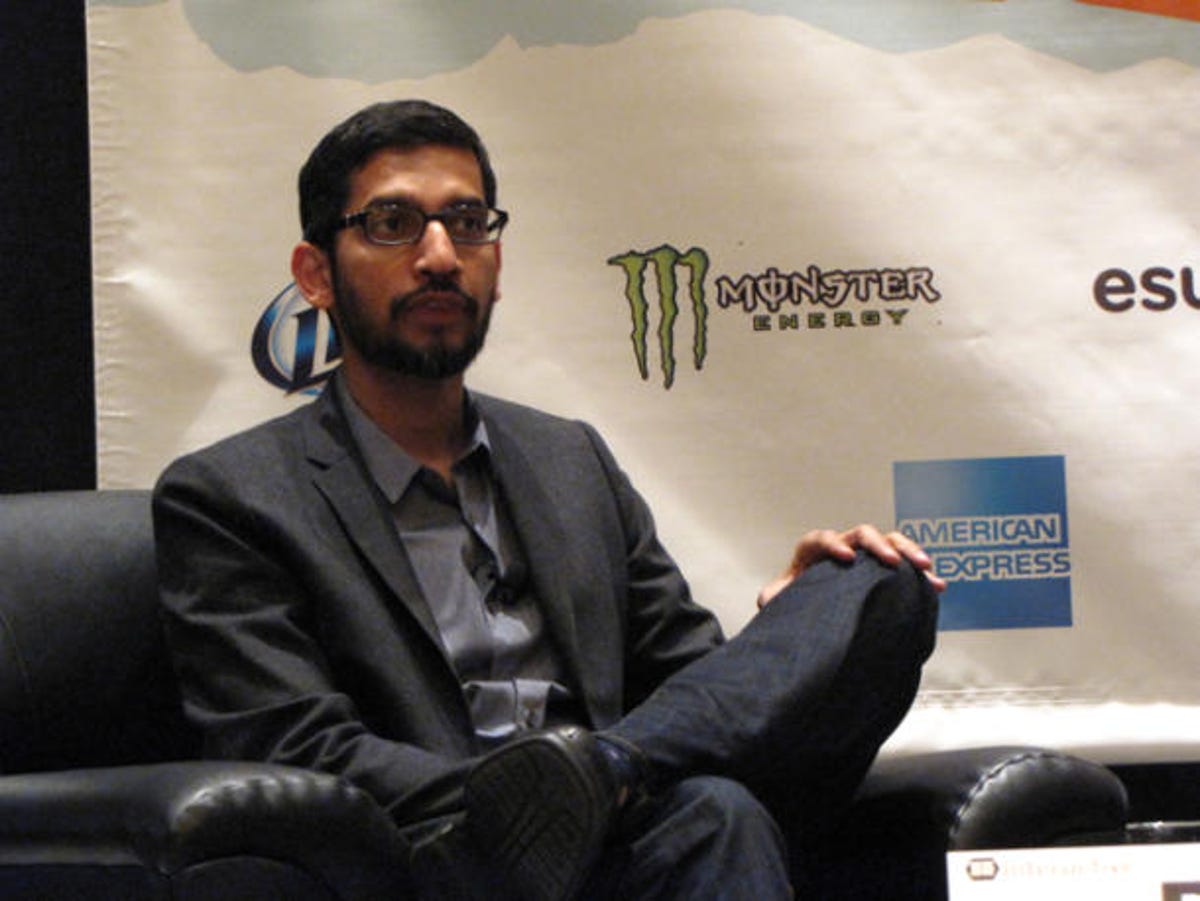
Daniel Terdiman/CNET
AUSTIN, Texas — Google plans on releasing an Android software developer kit for wearables within two weeks.
That was the biggest announcement from Sundar Pichai, Google’s head of Android and Chrome during an on-stage interview with John Battelle today at South by Southwest.
But during the hour-long talk, Pichai also discussed a wide range of issues related to how Google imagines its two operating systems being rolled out around the world, and how people will use and implement them.
Pichai’s announcement of the new Android wearables SDK came as he discussed the potentially huge market for the mobile OS on devices beyond smart phones and tablets. He said a big question at Google is how the company will successfully pull off that kind of expansion. He talked about the company’s hopes to be included in a number of cars in coming years, and about how powerful sensors are becoming ubiquitous, first in fitness devices, but soon in a wide variety of other technology. Google, Pichai said, wants to create APIs for those sensors, and as such, the SDK for wearables is a big first step.
Related stories
- Assange: Critics got lucky because NSA had no PR strategy
- At SXSW, thousands get a Kevin Bacon number of one
- In Austin, it’s South by South Westeros
But Google knows that mobile phones still present a huge growth opportunity, and Pichai lauded the full range of phones — from sub-$100 devices to high-end smart phones — that can lead to the next billion users. Pichai touted Google’s willingness to let people use Android for free, though he noted that the company requires licensing if companies want to build Android devices with Google services on top of the OS.
When it comes to auto manufacturers implementing Android, Pichai noted that in today’s world, many choose to stick to Apple’s iOS. But he likened that approach to walking into a hotel and finding that an in-room stereo system only works with iOS devices. “They’re probably losing at least half of their users,” he said.
Battelle asked if Google has plans to put Android on technology like devices from Nest, which it recently purchased for $3.2 billion. Pichai wouldn’t bite but did say that Google hopes to develop a set of common protocols that allow different devices to work together. Without being specific, he hinted that Nest could be part of that. “We are thinking hard about the layer which will connect all these devices together,” Pichai said. “That’s something we will work hard” for.
Chromecast
While Google doesn’t say how many of its Chromecast systems it’s sold, Pichai did say that the number is in the millions, all in the United States. And Google recently released an SDK for the Internet streaming device which 3,000 developers have already registered for.As well, Google is expecting to begin making Chromecast available internationally within weeks.
Project Ara
Pichai also touched briefly on Google’s internal Project Ara, a skunkworks of sorts for advanced projects and research.
He said that the effort is aimed at concepts that are slightly futuristic, but which can be quickly commercialized. For example, he said, the Project Ara team is working on ways to create modular smart phones, devices that can be broken down into component parts so that rather than replacing a phone, they can have new parts added. “Think about it as APIs for hardware,” Pichai said. “So people can build together in a modular way.”



